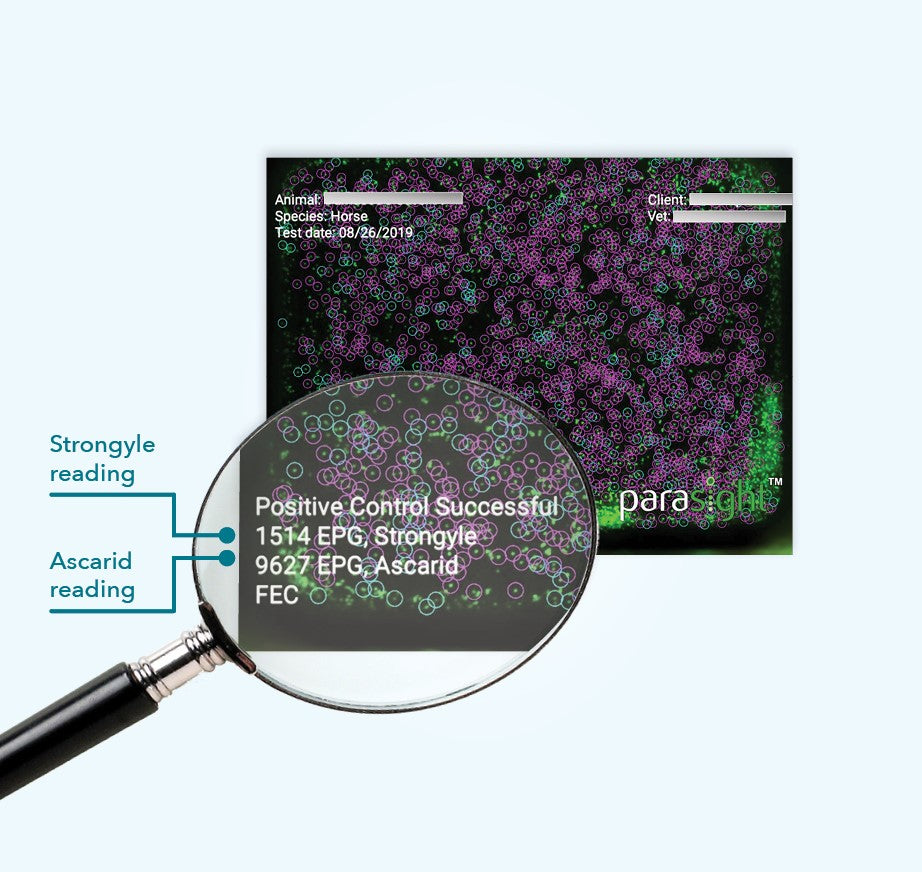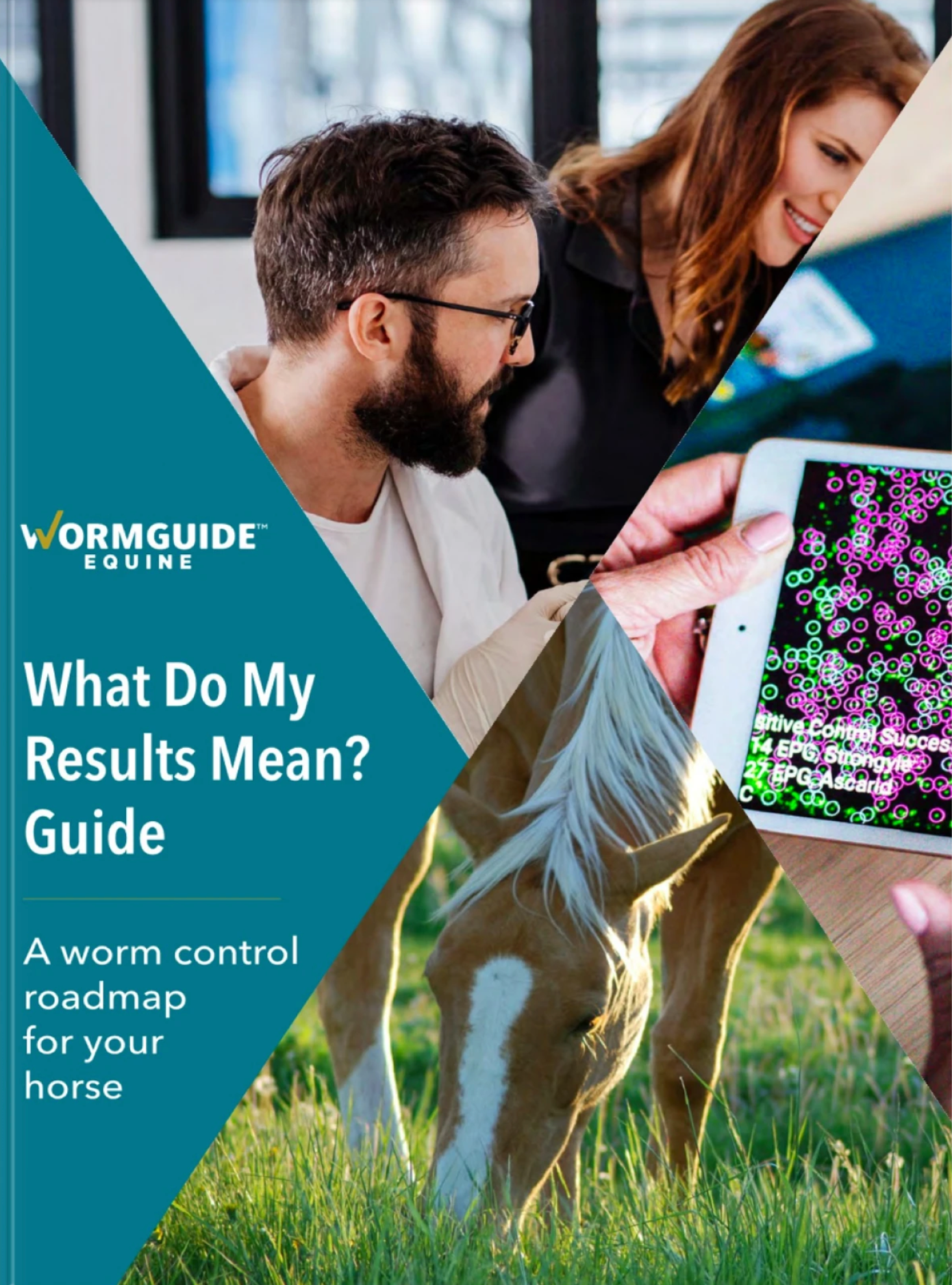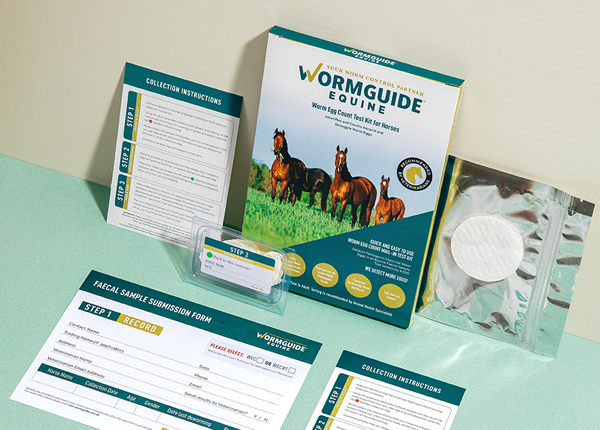
Build informed horse worm control programs that work
We’ve all been there. Filled with doubt. Sick of randomly pumping chemicals into our horses, unsure if the worm control measures we have in place actually work.
Hesitant to administer another wormer for the sake of it. Frustrated by unreliable worm control information. Stuck on the path of misguided control.
You keep doing what you have always done, nervous about the ever-present dangers of horse wormer resistance and worms capable of causing serious disease, wishing there was a smarter more effective alternative.
We get it! We know what it’s like to crave worry-free worm control solutions.
That’s why we are empowering horse owners and managers with the reliable worm egg count data they need to build informed worm control strategies.

Worm Control has entered the digital age. Bioscience tells us what to do – we just have to do it!
You’ll discover just how easy it is to build individualised science-based worm control strategies using amazing fluorescence imaging proof you can see.

Stop fumbling in the dark
Evidence-based worm control is easier than you think.
No matter what your deworming philosophy, we all want what’s best for our horses and there is no doubt that faecal samples are a gold mine of useful data. Take a peek inside with our imaging technology to make sure what you are doing works.

Collect - Send - Receive - Apply
It’s as easy as that. No more guesswork. No more wasted time and effort. No more misguided control. No more wasting money on wormers that won't work
Reasons to test
-
Support sustainable deworming
Protect the health of your animals and pastures for years to come. Evidence-based worming programs that use reliable worm egg counts to reduce the number of worming treatments keeps dewormers functioning for longer, so we can meet the health and well-being needs of current and future horses. Use our Kit to ensure your horses only receive the treatments they need.
-
Avoid misguided deworming expense
Even a cheap horse wormer is expensive if it doesn't work. Use precision worm egg counts to guide your deworming program. It is more cost effective in the long-run. If testing reveals that the worm egg count level is low, you don’t need to treat. Researchers (Stratford et.al., 2014) found the use of worm egg counts for adult horses reduced deworming medication use by up to 75%.
-
Minimise the risk of parasite infection and disease
There is no better diagnostic tool for protecting your horse from worms capable of causing serious disease and associated suffering. Use our digital worm egg count tests to make sure worm levels are not high enough to produce symptoms such as colic, diarrhoea and weight loss.
-
Be confident that your worm control programs are working
In the age-of dewormer resistance we cannot assume worming medications will always kill the egg laying worms. Avoid a false sense of security. Use our precision worm egg count tests and proof you can see to know if what you are doing is working.
-
Find out if your wormer killed the worms
It is impossible to effectively deworm your horse without checking that your dewormer killed the worms. Some horse wormers that work against ascarids don’t work against strongyles and vice versa. Our precision tests tell you if your treatments successfully treated the egg laying ascarids and strongyles in your horse. There is no other way to know for sure!
-
Protect your horse from the development of worms resistant to existing dewormers
Protect your horses from the development of worms that no longer respond to the treatments used to kill them. A well-executed worm egg count based deworming program slows the spread of resistance. The more worms you kill in one deworming on the property, the faster resistance will develop. Once resistance occurs on a horse property, it’s too late; it cannot be reversed.
-
Detect horse wormer resistance and emerging resistance on your property
Protect your property’s biosecurity. When used to test samples of at least six horses in your herd, the worm egg count biotechnology that we use determines if the worms on your property and in your horses are resistant to, or becoming resistant to, ivermectin and/or moxidectin dewormers.
-
Align deworming with your horse’s natural immunity
Only give horses the treatments that they need. Our worm egg count tests determine your horses’ strongyle egg shedding levels - low, moderate, or high so you can selectively deworm your horses. A horse with consistently high egg shedding levels reinfects the horse, infects pasture-mates and requires more worming treatment.
-
Establish an individual program for mature horses
The most effective deworming strategies are customised for individual horses, specific situations and particular worms. Without testing there is no strategy. Find out the types of worms in your horse, when to worm, and what horse wormers work on your property to deliver meaningful worm control. Give each horse the worm control attention they need and deserve.
-
Keep horse-babies safe
Young horses are particularly susceptible to lethal parasite infection and more at risk for developing disease. Worm egg counts used alongside correctly timed, test, treat and check worm control steps, help you choose the right wormer for the parasites present to keep your young horse safe.
-
Make informed treatment choices
Worm egg count evidence increases your chance of worming success. Outdated rotational regular-interval approaches, that aim to annihilate horse worms with randomly selected chemicals, continue to harm our horses and our pastures. Our worm egg counts identify the type of worm infecting your horse so you can make an informed product choice.
-
Lower the worm burden on your pasture
Determine how individual horses are contributing to the egg contamination of your pastures. Modern worm control approaches aim to control worm egg shedding and minimise the risk of parasitic disease. Horse worms naturally exist where horses graze and eradication is proven impossible.
-
Monitor your chemical free philosophy
A holistic approach to deworming includes worm egg counts for surveillance. Modern worm control is all about striking a balance. Parasitologists recommend informed worm control strategies that help horse owners test more and treat less. Regular and ongoing surveillance helps to protect your horses.
-
Preserve beneficial soil life and protect the biodiversity of your pasture
The health of our pastures effects the health of our horses. Environmental ecosystems play a crucial role in our horses’ overall health and wellbeing and a crucial role in sustainable worm control. Worm egg count guided deworming helps to reduce unnecessary chemicals into our environment.
-
Follow horse wormer manufacturer recommendations
Horse worm treatment manufacturers recommend performing a worm egg count test before and after worming treatments to gather valuable diagnostic information.
-
Check your non-chemical methods
Modern sustainable worm control is also about "cleaning up" the environment. Determine whether your non-chemical methods (such as pasture rotational practices, manure removal, stocking rate, alternate grazing with cattle and sheep) are paying off by monitoring horses with worm egg counts. If all horses on pasture have consistent high worm egg counts it may be due to a worm load on pasture.

Treat your horses right with science-based worm control solutions.
Option 1
1. The Super Surveillance faecal egg count (FEC) test guides your worm control program for each horse. It tells you the type of worm (ascarids, strongyles or both) infecting your horse and the number of strongyle eggs in a faecal sample to support your worming decisions and plan a tailored worming schedule for your horse. The best worming schedule for any situation must be based on faecal egg counts.

Treat your horses right with science-based worm control solutions.
Option 2
2. The Truth Teller faecal egg count (FEC) test is used after a worming treatment and tells you if the dewormer you use actually kills the egg laying worms in your horse. It tests the efficacy of the worming product and looks for reduction in the number of eggs. Comparing the results of the Super Surveillance egg count testconducted before deworming your horse and the Truth Teller egg count result performed after deworming your horse gives you the evidence that it either worked or failed to kill the egg laying worms. An egg counting technique with a detection less than 25 eggs per gram (EPG), as defined by theAAEP,capable of analysing samples containing low numbers of eggs is required. WormGuide provides you with a 4 eggs per gram (EPG) technique and technology capable of higher precision and increased reliability. Test what you are doing, you may need to make some changes.






